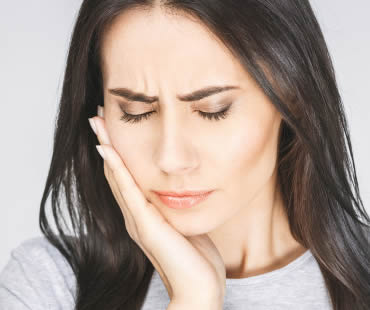
May 6, 2022 | Dental Topics 3, Cosmetic Dentistry, Blog
A gorgeous, white smile conveys confidence and vitality. Age, certain foods, dark beverages, and even medication can dull your teeth. In recent years, teeth whitening has become one of the most popular cosmetic dental procedures. Safe and effective, professional teeth whitening can revitalize your smile. If you are considering brightening your pearly whites, several options are available, including:
In-Office Whitening – Imagine visiting the dentist at lunch time and leaving with a sensational smile. With in-office whitening, you can erase stains and lighten teeth up to 10 shades in about an hour. The down sides to the in-office method are the cost, more than other options, and the lack of control over results. Because the dentist will combine bleaching gel with a special light, you can’t really select a desired shade and get that exact color. However, your bright, white smile will dazzle family and friends.
Take-Home Kits – Some people want to whiten their teeth at home and on their own time tables. Take-home kits allow you to do just that. First, your dentist will take impressions of your teeth and send them to a dental lab to create custom trays. Simply place a thin layer of the professional bleaching solution to the trays and wear them as directed until you achieve the desired level of brightness. Often, patients notice a difference right away, but the full impact will appear after whitening ends, usually in two to three weeks.
Over-the-Counter Whitening Options – Available in the form of strips and trays, over-the-counter whitening kits cost about $20 to $50. Although these options will save you money, many of the drug store whitening products won’t produce noticeable results. As well, these kits may irritate your gums and soft tissue because they are not specially designed to fit your mouth. For a safe, effective white smile, you should schedule a visit to your dentist for professional whitening.
Are you looking for a new dentist in Central Falls? Contact us today to schedule an appointment.

May 5, 2023 | Dental Topics 3, Dental Information, Blog
For years, we have heard that sugar is bad for our teeth. As research has grown, scientists now understand which kinds of sugars hurt your teeth and which foods help keep your mouth healthy. A balanced diet can help keep your smile looking and feeling great.
Certain foods produce changes in your mouth that can increase the risk of tooth decay. For instance, bacteria in the mouth transform sugar and starches into bacteria that attack the teeth and weaken the enamel. As well, foods like candy, cakes, pastries, and dried fruits can stick to teeth and create a haven for bacteria.
Making healthy choices can help promote a healthy mouth. Cheeses, protein, meats, nuts, and milk can protect tooth enamel by contributing calcium and phosphorus, which will remineralize teeth. Crunchy fruits and vegetables like apples and carrots are also good choices because they contain lots of water, which encourages saliva production.
When choosing a beverage, water, milk, and teeth are the best options for your oral health. Try to cut back on soft drinks and other beverages that contain sugar. Products that contain sugar substitutes like Equal or Splenda aren’t digested the same way as true sugar so they don’t cause over production of bacteria. In fact, chewing sugar free gum can actually improve saliva production and help protect your teeth.
Children and teens should work especially hard to eat a balanced diet. Poor eating habits can not only but their teeth at risk, but it can create other problems at well. A good diet influences brain development, learning capabilities, and normal growth patterns.
Schedule a dental cleaning appointment today at our Central Falls dentists office.

May 26, 2023 | Dental Topics 3, Dental Information, Blog
Do you wince when you take a bite of something hot, cold, or sweet? If so, you may be one of the millions of Americans experiencing sensitive teeth. This issue can impact your quality of life, causing you to limit the foods and beverages you enjoy.
Sensitivity in teeth occurs when dentin, the middle layer, is exposed. Usually, your gums cover the dentin, which contain tiny tubules that house the nerve branches leading to the nerve center of the tooth. If the dentin is uncovered, your tooth, or teeth, becomes sensitive.
Several factors can bring about tooth sensitivity, including:
- A worn out filling
- Cavities that need treatment
- Grinding your teeth
- Improper brushing that can wear down the enamel
- Poor oral home care, which allows tartar build up
- Receding gums
- Whitening your teeth
Sometimes, people experience pulpal sensitivity, which generally affects a single tooth and occurs because of damage to the pulp, or nerve center. Because the symptoms can be similar to general tooth sensitivity, your dentist will need to examine your teeth and possibly get an X-ray to determine if you have any decay.
For general sensitivity, you can take several steps at home, including gently brushing teeth, using a soft brush, selecting fluoride toothpaste, and getting treatment for teeth grinding. Your dentist may also recommend toothpaste specifically designed to lessen sensitivity in teeth. Treatment for pulpal sensitivity usually involves removal of decay and/or root canal therapy.
Schedule a dental cleaning appointment today at our Central Falls dental office.

Jun 24, 2022 | Dental Topics 3, Dental Information, Blog
Lots of things can go wrong with your oral health if you aren’t aware of potential problems and how to avoid them. There are some simple ways that can help you maintain good oral health and steer clear of sometimes painful problems.
Cavities
Your first line of defense against cavities is good oral care, including regular and thorough brushing and flossing. Reducing your consumption of sugary and acidic foods and drinks will also help. Ask your dentist about fluoride treatments and dental sealants, both of which can provide extra protection against cavities. Quitting smoking is another good way to avoid problems, since the habit makes your teeth sticky and more prone to allowing bacteria to cling to your tooth enamel.
Gum disease
Practicing good oral hygiene is the best way to fight gum disease, also called gingivitis. Once you develop gingivitis, it can develop into the more serious periodontitis if you’re not careful. Brush at least twice daily with fluoride toothpaste and a soft toothbrush, which can be manual or powered. Floss every single day, and you may also rinse with an antiseptic mouthwash. Professional teeth cleanings and checkups twice a year, eating a balanced diet, and quitting smoking are also helpful in preventing gum disease.
TMJ
Temperomandibular joint disorder, or TMJ, is an increasingly common problem. It causes chronic jaw pain, popping, headaches, and neck problems. Teeth grinding or clenching are leading causes of TMJ, but it can also result from arthritis or trauma. If you suspect you are grinding or clenching your teeth, or are experiencing pain consistent with TMJ symptoms, visit your dentist. Some treatments include sleeping with a custom mouth guard, applying a warm washcloth to relax your jaw muscles, and practicing stress-reducing techniques like meditation.
Our dental office is located in Central Falls

Oct 29, 2021 | Dental Topics 3, Dental Information, Blog
When your tooth pulp that is located in the center of each of your teeth becomes damaged or infected, the best way to save the tooth is to have root canal therapy. This safe and effective treatment is not as painful as its reputation, and should not be avoided. Watching for signs that your tooth pulp has been compromised is an important step in saving your tooth, so that treatment may be performed before your condition becomes too advanced.
There are not always signs associated with a tooth that requires root canal therapy. Sometimes only examination, X-rays, and other tests will reveal problems. This is one reason regular dental visits are important. In other cases, symptoms are present to indicate pulp damage. Some typical signs include:
- Pain that is often related to inflamed tooth pulp, which can be caused by deep decay, chipped or cracked teeth, repeated dental procedures, faulty crowns, infection, tooth grinding, or periodontitis. Inflammation increases pressure inside the pulp cavity and triggers the tooth’s nerves. The pain may be in the tooth itself, or it can be referred to other areas in your mouth. Pain when eating or sensitivity to hot or cold is also common.
- Gum swelling near the damaged tooth
- Facial swelling
- Tooth loosening
- Pus around the damaged tooth
- Tooth discoloration, which usually occurs over a longer period of time. Discoloration can take weeks, months, or years to appear. This is another reason for regular dental checkups.
If you experience any of the symptoms above, or if your dentist identifies problems upon examination, it’s time to consider root canal therapy. Saving your natural tooth is almost always better than having to replace a lost tooth. Root canal therapy can help you keep your smile intact, as well as its function. Your natural sensations of a real tooth remain, as well as normal biting abilities. Don’t shy away from treatment; take care of tooth pulp problems when they arise.
Schedule your appointment at our Central Falls dental office

Apr 21, 2023 | Dental Topics 3, Dental Information, Blog
Modern lifestyles can be extremely stressful as many people have to deal with deadlines, demands and other frustrations that make up daily life. This can be an issue if you’re constantly under stress as it may affect your health. There are numerous health conditions that can be affected by high stress levels, and one of these is teeth grinding.
What Is Teeth Grinding?
Teeth grinding, or bruxism, is a condition that causes you to clench and grind your teeth together. It normally occurs during sleep so you may not even realize you have bruxism. This condition is likely to be identified by your family dentist in Central Falls due to teeth becoming worn down and chipped, or quite often a sleeping partner will complain about the grinding noise during the night.
What Does Stress Have To Do with Bruxism?
Teeth grinding has been linked to high levels of stress and anxiety. It’s been shown that people under stress are more likely to grind their teeth, particularly if they don’t have any coping mechanisms.
How Could Teeth Grinding Affect Me?
Teeth grinding can have more of an effect than you might imagine. It can cause teeth to become cracked, sensitive or even loose. Excessive grinding can damage the gums and bone surrounding your teeth, or may cause a painful disorder called TMD. This affects the jaw joints or temporomandibular joints, and can cause headaches, earache and facial pain.
How is Bruxism Treated?
Your dentist in Central Falls is likely to recommend a custom-made night guard which is worn while sleeping to protect your teeth and jaws from any further damage. It works through preventing your teeth from coming into contact. Additionally, you may be prescribed a muscle relaxant to help prevent clenching. It can be helpful to reduce stress levels through various measures which can include exercise, yoga, meditation or stress counseling.
Our dental office is located in Central Falls








